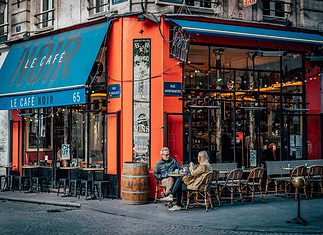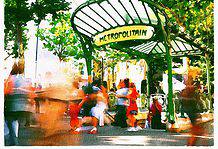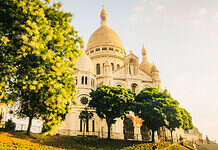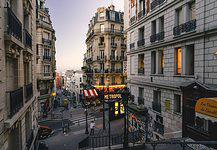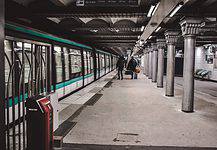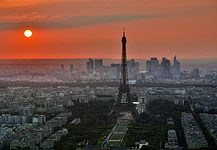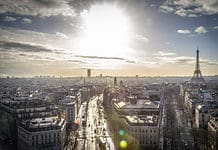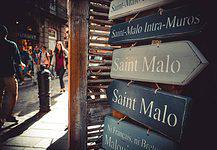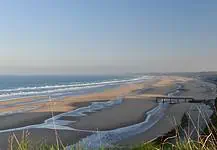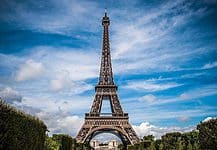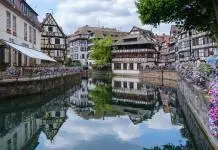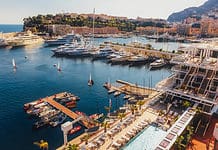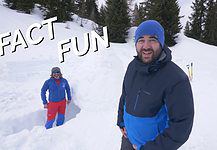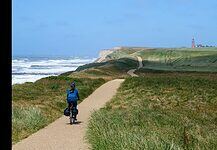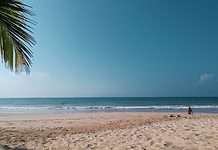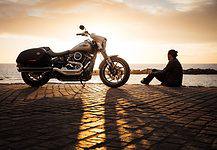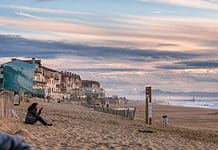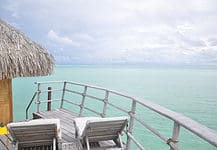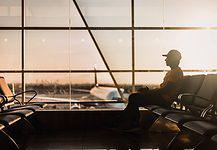Html code here! Replace this with any non empty text and that's it.
Travel to France
France is all about cheese, wine, art, fashion, and the eiffel tower. It is packed with culture, history, good food, beautiful architecture, and stunning landscapes.
Paris is most definitely a major France attraction. The ‘city of romance’ or ‘city of lights’ is on many European bucket-lists, largely to visit the eiffel tower and spend romantic moments at corner cafes. South of France holidays are also quite popular, with several beautiful beaches to spend long summer days at. There’s also the mountains, vineyards, French riviera and other beautiful inland areas. France is beautiful in both the summer and winter – with both beach towns and ski resorts.
France is the second most expensive European country to travel to. If you’re on a tight budget then you may struggle with enjoying everything that France has to offer – there are a few budget travel tips for France though, just look out for them!
You will find loads of great articles with tips for traveling to France on Travel Dudes. From budget-friendly tips through to the best France tourist attractions and must-see famous landmarks in France.
Visa Requirements for France
France is part of the Schengen agreement, which allows most of the EU citizens to enter the country only with their ID. When entering by air from a non-Schengen country, you will be expected to fill out a brief form which includes an address in France. You most probably won’t have a proper address, so you can use the one of your accommodation. It’s very unlikely that this will be checked, but you will have to enter an address if you want to enter the country.
A stay of longer than 90 days for non-EEA or non-Swiss citizens usually requires a visa, which you need to get before your trip. To make 100% sure what you need, please check with your government officials or on this website.
Important Cultural Information
The French are a very proud nation. They cherish their culture, history, language and cuisine. While they may seem rude or offish from a first meeting, once you’ve gained an acquaintance, the French are warm and welcoming to visitors. Communication in France tends to be direct with no small-talk. It’s very uncommon for strangers to talk to each other, especially when on public transportation (much like a lot of Europe). It’s worth brushing up on your French etiquette before visiting in order to avoid awkward situations.
The French are generally quite straightforward and direct in giving criticism. They value their privacy and will remain unreserved if they do not know you well.
When greeting, shaking hands and kissing on the cheek is expected. The form of personal address is Monsieur or Mademoiselle until you are comfortable enough with first names. It’s always best to first try and interact in French, before defaulting back to English (take along a copy of Learn French for Dummies to help you along the way or learn a few phrases on Babbel before you go). You will be much better received if you at least give an effort.
Some commonly used French terms to learn:
- Bonjour = hello
- Merci = thank you
- Au revoir = good-bye
- S’il vous plaît = please
- Oui = yes
- Non = no
- Un = one
- Du win = wine
- Bière = beer
- Fromage = cheese
Banking & Money
In France you pay with the Euro (€), just like in other 24 European countries. 100 cents makes up 1 Euro. Each country can produce their own Euro coins, where one side of the coins has their own unique designs, while the other side has a European standard design. You can use the Euro in any of the eurozone countries, without needing to exchange money when crossing the borders.
To exchange money, there are plenty of ATMs, where you can withdraw up to €500, usually for a fee, depending on your own bank conditions. Credit cards are well accepted all over. But it’s always useful to have a few Euro notes, especially in the countryside.
Medical Emergency Information
If there is an emergency, you can call 112 from any phone at no cost. This will get you in touch with the police, firefighters and ambulances.
If you’re looking for travel insurance, we are an affiliate of World Nomads.
[/vc_column_text]
Wi-Fi and Internet
There are 4 ‘physical’ network operators in France: Orange, SFR, Bouygues Télecom and Free Mobile. Other providers are mobile virtual operators based on Orange, SFR or Bouygues Télécom. Mobile connection is good throughout most of France, you may however experience some slow connections in rural and mountainous areas.
If you are staying in France for a while then you may want to get a local SIM card. Most service providers (such as Orange, SFR and Bouygues Telecom) supply SIM cards in shops and are easy to get as travelers. Orange, for instance, promotes Orange holiday, which allows you to use 120 international minutes and 1000 texts within all Europe + 1GB data in France for about €40.
Another option is to rent a mobile MiFi device, your own hotspot. Those costs from around €5 per day. There are services, which you can pick up at the airport or which gets delivered to the hotel you are staying at.
Wi-Fi is easily available at hotels and many coffee shops. Look out for ‘Wi-Fi’ or ‘@’ signs on the doors. In Paris, Pompidou Centre is a popular spot with free Wi-Fi. Several public parks and libraries around Paris also have free Wi-Fi – make sure to use a VPN when accessing public Wi-Fi hotspots (like ExpressVPN).
Coworking in France is also popular, with major coworking spots in Paris along with many found in Nice, Lyon, Toulouse, Bordeaux and Cannes.
Arrival in France
Most probably you will arrive by plane in Paris, which most international airlines offer flights to. Roissy – Charles de Gaulle is the main airport in Paris, which is home to Air France. Air France and the companies forming the SkyTeam Alliance (Dutch KLM, Aeromexico, Alitalia, Delta Air Lines, Korean Air,) use Terminal 2 while most other foreign airlines use Terminal 1. Paris has a second airport, Orly, which is used mostly for domestic flights and some internal European flights.
Other major airports in France are Bordeaux, Clermont-Ferrand, Lille, Lyon, Marseille, Nantes, Nice and Toulouse. Two airports, Bâle-Mulhouse and Geneva, are shared by France and Switzerland and can allow entry into either country.
Check Expedia for available flights to France.
Then there is also the option to arrive by train, coming from neighboring countries. The French rail company, SNCF, provides direct service from most European countries using regular trains. The Eurotunnel (aka Le Shuttle) is a train service between Folkestone in Kent in the UK and Calais in France.
You can also come via ferry from both England and Ireland. France ports include Calais, Dunkerque, Dieppe, Le Havre, St Malo, Roscoff, Cherbourg and Caen.
You can of course also enter France via bus or by car from neighboring countries. If traveling to France by car, check out Europcar for car hire.
Areas of France
Metropolitan France is divided into 13 administrative regions, which themselves can be grouped into seven cultural regions.
Remember, there are many incredible trips in France apart from visiting Paris.
Île-de-France
The region surrounding the French capital, Paris.
Northern France
A region where the world wars have left many scars. Areas here include Nord-Pas de Calais, Picardy and Normandy (here’s more on the beaches in Normandy).
Northeastern France
A region where wider European culture (and especially Germanic culture) has merged with the French, offering a different culture to the rest of France. Areas here include Alsace, Lorraine, Champagne-Ardenne and Franche-Comté.
Great West
A very agricultural area, including Brittany and Pays de la Loire.
Central France
A largely agricultural and vinicultural region, featuring river valleys, châteaux and historic towns. Areas include Centre-Val de Loire, Poitou-Charentes, Burgundy, Limousin and Auvergne.
Southwestern France
Beautiful beaches overlooking the Atlantic Ocean – close to the mountains of Spain. Areas include Aquitaine and Midi-Pyrenees.
Southeastern France
The primary tourist region of the country outside of Paris, with a warm climate and azure sea, contrasting with the mountainous French Alps. Main areas here are Rhône-Alpes, Languedoc-Roussillon, Provence-Alpes-Côte d’Azur and Corsica.
Major cities of interest for travelers in France include Paris, Bordeaux, Bourges, Lille, Lyon, Marseille, Provence Nantes, Strasbourg and Toulouse.
Transportation in France
When in the big cities, the best ways to get around is by foot and public transportation.
When traveling between cities, it’s best to have your own car or use the long distance trains and buses. Check out Europcar for car rental and Eurail (for non-Europeans) or InterRail (for Europeans) passes for long distance train travel. The intercity bus service is a relatively new concept in France. Megabus and Ouibus both offer domestic French tickets as part of their international networks.
Public transportation works really well throughout France. In Paris, the Metro, rail and bus service is run by RATP. The network is split up into different zones, which will determine the fare of your trip. The Metro is spread throughout the city and easily gets you to most areas. Here’s our guide on using the Paris metro.
Throughout other main cities and towns in France there are buses, trams, trolleybuses, funiculars, undergrounds and trains.
Accommodation in France
Accommodation in France varies from five-star ultra-luxury hotels and villas to very basic budget-hotels and hostels. You can take your pick on what type of accommodation you would like to stay in – hotels (one – five-star), guesthouses and B&Bs, villas, apartments, resorts, boutique hotels or hostels. All varying in price and quality.
If you’re visiting Paris, you’ll find that each Parisian neighborhood has its own flair and style. There are 20 Arrondissements in Paris. The 1st Arrondissement features the Louvre, the 4th Arrondissement features Le Marais, the 5th Arrondissement has the Latin Quarter, the 6th Arrondissement has a neighborhood vibe with chic cafes and galleries, the 7th Arrondissement is home to the Eiffel Tower, the 8th Arrondissement has the Champs-Élysées, the 9th Arrondissement in Paris has wining, dining and the opera, and the 18th Arrondissement has Montmartre.
Where you end of staying will be determined firstly by your budget as well as what you are wanting to get out of your Paris trip.
Food & Dining Guide for France
France is famous for its fine-dining cuisine, though you’ll also find many simple restaurants serving delicious foods. Deli’s selling a mix of cheeses, charcuterie and preserves along with bakeries selling tarts, freshly baked breads and pastries are a common occurrence while in France.
Specific areas of France are famous for certain things, eg. croissants and macaroons in Paris, cider and galettes in Brittany, camembert from Normandy and champagne from Champagne.
For a typical French picnic pack a basket filled with French wine, a baguette, a selection of cheeses, Charcuterie (cured meats), grapes, a quiche and a few pastries. For added measure, head to the eiffel tower to enjoy it.
Some of France’s national dishes include Boeuf Bourguignon, Bouillabaisse, Cassoulet, Ratatouille, Quiche Lorraine, and Raclette among others. For something a little different, there’s also the famous frogs legs and Bourgogne snails!
Read our tips on food in Paris.
Bon appetit!
France Tourist Attractions
There are so many things to do in France. Major tourist attractions in Paris include Disneyland Paris, the Mont-Saint-Michel Abbey, the Paris Catacombs and Moulin Rouge.
The Eiffel Tower is one of the most famous landmarks in France along with the Louvre Museum, Champs Elysee, the Arc de Triomphe, Notre Dame de Paris (all located in Paris), Palace of Versailles (30 minutes outside of Paris), Pont du Gard and Millau Viaduct (located in Southern France), Abbey of Fontenay (located in the small town of Marmagne) and Mont Blanc (the highest peak in the Alps).
We love exploring Paris by foot, taking in the sights and sounds of the city! Also, consider getting the Paris Pass if you’re planning on visiting the big attractions.
Museum and gallery hopping are also popular France attractions, with Paris having a number of different museums. Some of the popular museums in Paris include the Louvre Museum, Orsay Museum, and Centre Pompidou.
Shopping in France
Paris is widely known as a shopping hotspot, with the Champs-Élysées being one of the most famous shopping streets in the world. Here you will find all major fashion labels, including Louis Vuitton, Guerlain, Ladurée, Cartier, Lev’s, Montblanc, Gucci and many more.
Popular chain grocery stores include Monoprix, Carrefour, Lidl, Auchan, Intermarche, Leclerc, and a few others. In terms of department stores, the popular ones are Le Bon Marche, The Bazar de l’Hôtel de Ville, Printemps Haussmann and Galeries Lafayette.
Shopping malls are found in the bigger cities as well as smaller towns. You will also find several street markets and weekend markets – though in France markets have a strong influence on food rather than clothes and other products.
France is well-known for its vintage and second-hand shops – Paris is full of small second-hand shops where you can pick up some amazing purchases. The Puces de Saint Ouen market in Paris is a huge treasure trove of antiques and bric-a-brac.
Special purchases to get in France include designer labels, lace, crystal class, cheese, wine, and coffee.
Nightlife in France
Nightclubs and bars can be found in every town and city in France. The style and music of these establishments vary wildly. You can find a mixture of genres, including rock, jazz, hip hop, indie and pop. In major cities, like Paris and Lyon, some nightclubs may be free of charge – however, drinks will then be more expensive. Nightclubs have a fixed closing time of 05:00. Here’s more information about the nightlife in Paris.
Theatres, cinemas and other cultural events are also quite common. You can check out the local tourism boards of each city/town to see the upcoming events.
Safety Tips for France
France is generally a safe country to travel around. Though, as with everywhere it’s always best to take precautions and remain aware of your surroundings.
Take precautions when walking on the streets. Don’t carry your passport around, make sure your bags are properly sealed (use the inside compartments to store your valuables) and carry your bags across your body rather than on your shoulder.
When in busy restaurants or nightclubs or at buzzing tourist areas, don’t be easily distracted. Make sure to keep an eye on your valuables.
Be aware of tourist scams, such as card tricks or other magic shows. This along with students asking you to sign a petition – avoid these guys.
There have also been instances of pickpockets and thieves on the Paris Underground, so be aware and again keep an eye on your bags. Also, be aware of the common Paris scams.
Conclusion
France is a country that you have to visit at least once in your life. It’s a country that so many tourists fall in love with on their first visit, and keep returning for more. There’s something about the language, the atmosphere, the buildings, the landscapes, the history, the culture, and of cause the food (don’t forget the wine) that captures a piece of your heart. Your memories of travelling in France will last a lifetime.
If possible, try to avoid French school holidays and Easter, as hotels are likely to be overbooked and traffic on the roads is simply awful. Summer is a popular time to visit France, the weather can get quite hot particularly along the Mediterranean coast. Winter can get extremely cold, sometimes freezing so make sure to bring appropriate clothing when visiting in winter (here’s our guide to experiencing winter in Paris).
And if you need more convincing on why you need to visit France, read our post on what makes France so special.
Our top France travelling tips is to just go! Don’t put it off.

